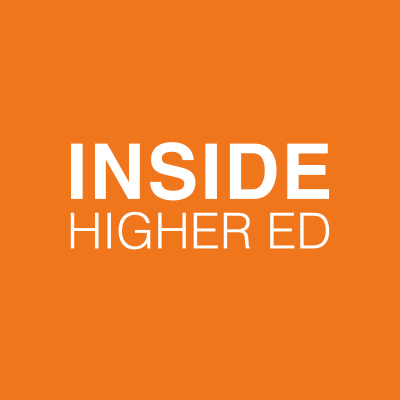
Chronicle of Higher Education
August 18, 2019 Enrollment Management Trends
Since it hit its peak in 2010, black student enrollment has declined more than 13 percent. Several factors have led to this decline, including the closure of for-profit colleges as well as lower unemployment rates. Colleges are exploring ways to increase black and minority enrollment through partnerships, college application sessions, text messages, and summer programs. SUBSCRIPTION REQUIRED

Chronicle of Higher Education
August 18, 2019 Enrollment Management Trends
Data indicating the size of U.S. institutions and enrollment in fall 2017 has been released. Institutions with enrollments that were above average for their sector and classification were ranked by size. Subscription required.

Education Dive
August 14, 2019 Enrollment Management Trends
While the number of high school graduates rose by 15% in the early 2000’s, only 5% growth is expected between 2012-13 and 2027-28. The potential for an economic slow down could boost post-secondary enrollment, but it stands to hurt institutions’ balance sheet reserves, endowment returns and fundraising efforts.

The Hechinger Report
August 06, 2019 Student Success
According to the National Student Clearinghouse, only about half of students who start college actually earn degrees. To address this problem, an estimated 1,400 colleges and universities are turning to predictive analytics to find trends and patterns to reshape the college experience for students and put them on a narrow, data-driven path to earn a diploma. Monitoring students in this way, however, has both benefits and costs.

EdSurge
July 31, 2019 Enrollment Management Trends, Student Success
As many institutions are moving away from reliance on standardized test scores in the admissions process, the College Board and ACT are shifting to a more holistic approach to assess student’s academic capabilities. College Board is testing a new advisory tool called the Environmental Context Dashboard, while ACT is also providing new tools, including a test of socio-emotional skills called the ACT Holistic Framework.

USA Today
July 30, 2019 Value and Affordability
In a recent Twitter poll run by USA Today, 45% of 41,025 participants claimed cost is their primary consideration when choosing a college or university. Cost consciousness, however, is not the same as being able to afford the price of school. Another Twitter poll concluded that while 42% of future enrollees’ families were planning to use income and savings to fund their child’s education, the remainder planned to rely on a mix of loans, scholarships, and credit cards to cover costs.

The Hechinger Report
July 22, 2019 Enrollment Management Trends, Value and Affordability
As national student debt continues to climb, more than 10% of new borrowers regularly default as they leave post-secondary education. More than 60% of those in default have small loans of less than $10,000. In recent years, however, there’s been a surge in the number of students utilizing big loans to finance their education, with 17% leaving school with more than $50,000 of federal student loan debt. With this growth, scholars are identifying new types of big borrowers: lower-income adults and parents.

Education Dive
July 18, 2019 Student Success
Graduates who earned bachelor’s degrees in 2018 received an average starting salary of $51,000, only marginally higher than 2017 graduates. Research from the National Association of Colleges and Employers (NACE) shows there has been little growth in average starting salaries since 2015.

Inside Higher Ed
July 10, 2019 Enrollment Management Trends, Student Success, Value and Affordability
In an effort to boost the number of students receiving financial support for college, Texas will soon become the second state to require high school seniors to complete the FAFSA prior to graduation. Completing the FAFSA is a leading indicator of college enrollment, with ample evidence that more financial aid is associated with college completion outcomes.

Education Dive
July 09, 2019 Enrollment Management Trends
A new report from S&P Global explains that colleges with more resources and brand recognition have had an easier time navigating the increasingly competitive higher education landscape. Complementary findings in a report from the National Bureau of Economic Research found a decrease in state funding has a bigger negative impact on non-research-oriented public universities.